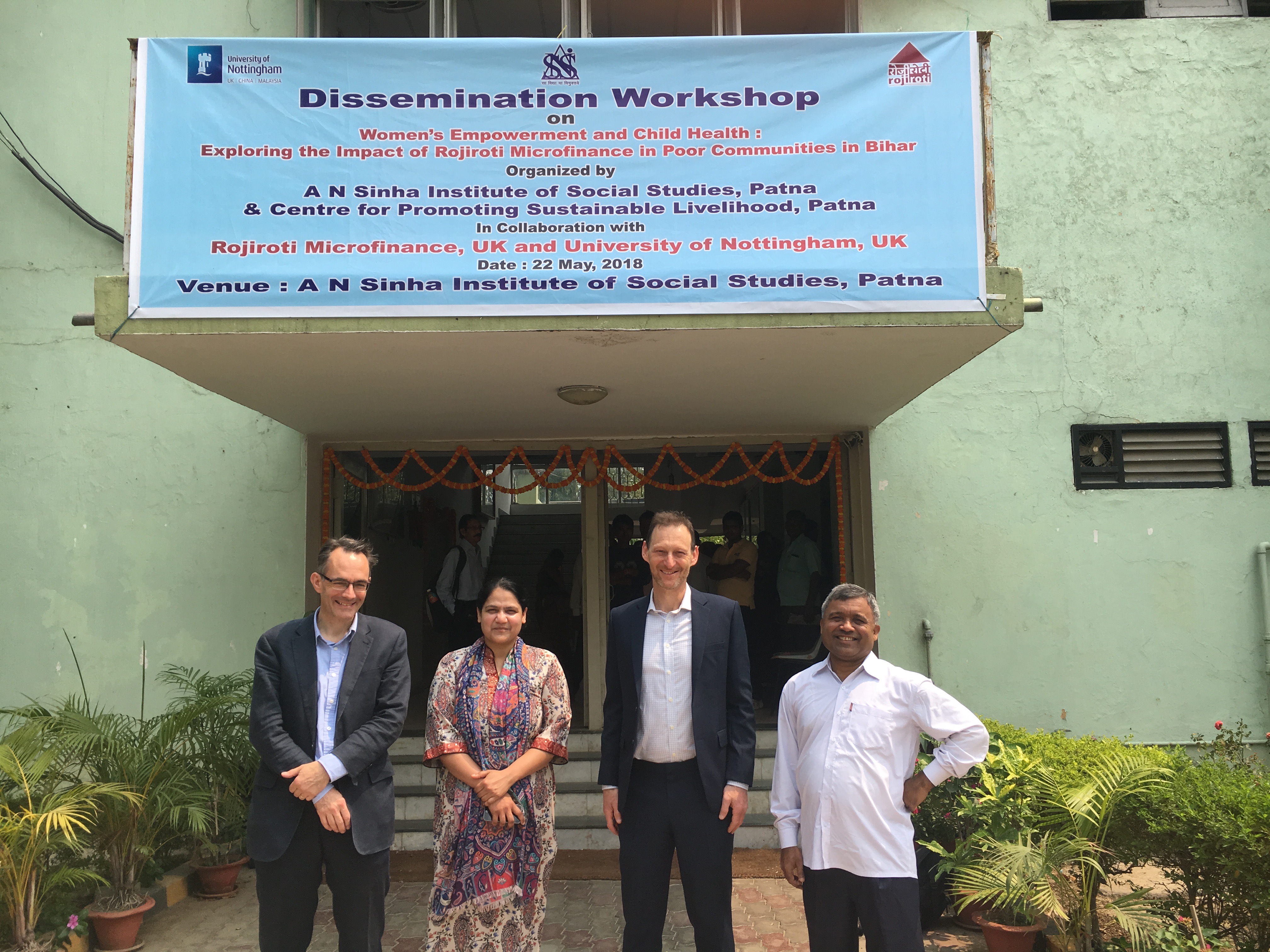Small loans given to women in poor areas of Northern India are helping to improve child nutrition in rural communities, according to a report from experts at the University of Nottingham.
The findings, published today in the journal Archives of Disease in Childhood, show the results of a large clinical trial looking at a microfinance programme called Rojiroti (daily bread), which gives small loans to poor women in self-help groups.
Microfinance schemes are designed to help alleviate poverty in some of the world's poorest countries, with the aim of helping the poor to work themselves out of poverty. The low cost, innovative Rojiroti approach enables poor and marginalised women to be the primary customer group – working with much smaller loans than is usually the case.

This trial looked at the effects of Rojiroti and the impact it had on very poor women living in Tolas (village communities) in the Bihar State (Northern India), where only 10% of participants own land and only 20% were literate. The team of researchers were primarily interested in the health of their children.
Alan Smyth, Professor of Child Health in the School of Medicine at the University led the study, he said: "Malnutrition is common in children in these areas and between 15 and 20% are wasted - where their weight for height is more than two standard deviations below normal. Wasted children are at least three times more likely to die than their better nourished peers. Under five mortality in Bihar is high, with a ratio of 52 deaths to 1000 births compared with 10 deaths to 1000 births in Goa. So this is a real issue which needs addressing."
With Rojiroti microfinance, women form self-help groups and save their money to provide loans to group members. After six months, they receive larger external loans. The women are then able to use the money for any purpose, from family emergencies, to small business or agriculture. The team of researchers randomised village communities to either receive immediate Rojiroti or to wait 18 months to receive it. They then weighed and measured the children after 18 months (before the second group received microfinance). In total 2064 children took part.
The team found that the children in the Rojiroti group had significantly better weight for height, weight for age and mid upper arm circumference following the trial. Significantly fewer were wasted or underweight.
Through our clinical trial, we have shown that Rojiroti can improve children's nutrition and we think this can lead to improved survival. Rojiroti has steadily become more popular in Northern India over the last 15 years and there are now approximately 31,000 members in Bihar. To further improve the lives of people in these areas, the scheme should be scaled up, which could lead to better health for more children."






